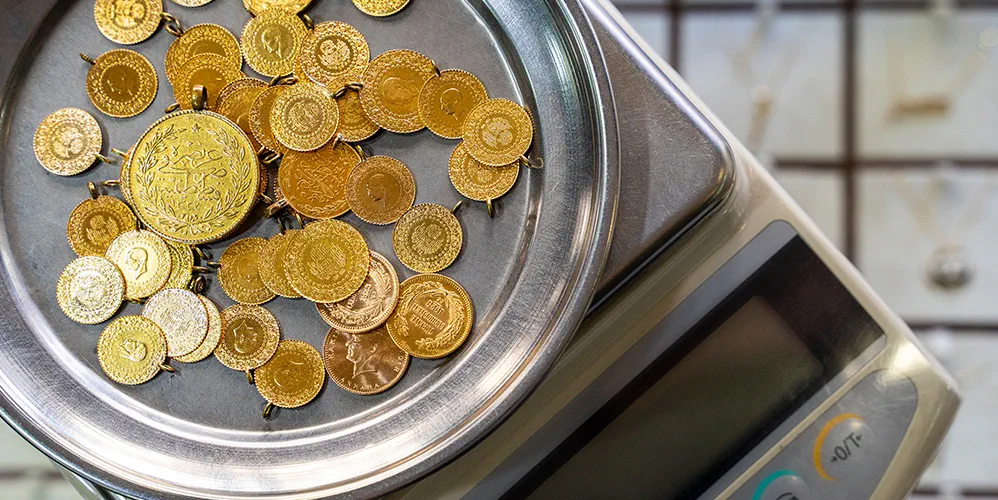
Why is a CIBIL Score Important?
01 नवम्बर 2019

Started in 2000, CIBIL or the Credit Bureau is an authorized credit information company that tracks debt repayment history and provides a credit score accepted by a vast network of financial institutions as a valid benchmark to examine a potential borrower’s credit quality. Here’s why a CIBIL score is important:
Lender considers the CIBIL score before approving a loan
The information collected and maintained by the bureau is gleaned from data collected from banks and other lending institutions on a monthly basis. On the basis of this data, CIBIL issues a score. This score is shared with the lenders on request, when an applicant applies for a loan.
What is an ideal credit score?
The range is from 300 to 900. Any score higher than 750 is a decent credit score. If an applicant has a credit score higher than 750, he/she is likely to get the loan approved and may get an attractive rate of interest. A loan application may be rejected if the credit score comes out to be too low.
How to source your CIBIL report?
Apart from a CIBIL score, you can also get your CIBIL credit information report. The report details the credit quality of your auto loan, home loan, credit card, over draft facility and personal loans. It carries your personal details, employment details and account information. The procedure to source your CIBIL report is exactly the same as getting your CIBIL Score.
Components of the CIBIL report
CIBIL Score
The first part of your CIBIL report has your CIBIL score, which is a value between 300 and 900. A score closer to green that is above 750 is preferable.
Personal information
Another section contains your personal information like name, date of birth, PAN number, Passport details and gender.
Contact information
The contact Information segment will capture all your address and contact details.
Employment information
The employment section will provide details about customer’s income and occupation at the time of a previous loan sanction.
Account information
An important section of the report is the account information which details the material about the borrower’s credit cards, loans, name of the lender, type of loan (whether secured or unsecured) and all the accounts held by the borrower.
Consumer Dispute Remark
The borrower can also put in their remarks about a particular loan transaction in the Consumer Dispute Remarks for evaluators to see every time the credit report is opened for assessment. The comments are presented for a year.
Popular Articles
Related Articles










-
Disclaimer
The contents of this article/infographic/picture/video are meant solely for information purposes and do not necessarily reflect the views of Bank of Baroda. The contents are generic in nature and for informational purposes only. It is not a substitute for specific advice in your own circumstances. Bank of Baroda and/ or its Affiliates and its subsidiaries make no representation as to the accuracy; completeness or reliability of any information contained herein or otherwise provided and hereby disclaim any liability with regard to the same. The information is subject to updation, completion, revision, verification and amendment and the same may change materially. The information is not intended for distribution or use by any person in any jurisdiction where such distribution or use would be contrary to law or regulation or would subject Bank of Baroda or its affiliates to any licensing or registration requirements. Bank of Baroda shall not be responsible for any direct/indirect loss or liability incurred by the reader for taking any financial decisions based on the contents and information mentioned. Please consult your financial advisor before making any financial decision.
What Is Overdraft Facility? All You Need To Know!
When you open a bank account, you are provided with a bouquet of financial services. The bank provides a cheque book and a passbook to help you manage and maintain your accounts. Furthermore, you are provided with an ATM cum debit card, net and mobile banking facilities and so on. The bank also offers a financial service known as the overdraft facility. But what is overdraft facility? Here’s all you need to know.
What is overdraft facility in bank?
Overdraft facility is a financial facility or instrument that enables you to withdraw money from your bank account (savings or current), even if you do not have any account balance.. Like any other credit facility, the bank levies an interest rate when you avail the overdraft facility. You typically have to pay a fixed interest rate to avail an overdraft limit.
What are the features of the overdraft facility?
Having explained what is overdraft limit, let’s find out its features. These are as under:
Banks offer overdraft facilities over a pre-determined limit, which may differ for every borrower.
Overdraft limit account is a running account in which you can deposit/ withdraw amount anytime up to the specified limit.
The bank levies the interest on the overdraft amount used by the borrower at predefined rate. The interest is calculated daily and billed/debited to your on monthly basis. The interest amount increases if you default on paying the due overdraft amount.
Unlike most loans wherein you have to pay a prepayment penalty for repaying the loan before tenure; banks so not levy any prepayment charges on overdraft limits. You can pay off the overdraft amount cumulatively without incurring any prepayment penalties.
You can repay the overdraft, in different amounts, whenever you have the money. The system of EMIs, which is prominent with most loans, does not exist in the case of overdraft limits.
While there is no minimum monthly repayment schedule in the case of overdraft loans, the amount owed by you should be within the overdraft limit.
Joint borrowers may avail overdraft limits. However, both the applicants are equally responsible for repaying the sanctioned Overdraft limit
Different types of collateral accepted by banks against overdraft loans
Overdrafts against your house or property
Overdrafts against your fixed deposits
Overdrafts against your life insurance policy
Overdrafts against your equity holdings
Overdrafts against your salary
Final word: As is evident, the overdraft facility is one that can truly help you when you need money. Banks also fix decent repayment tenures, so that you can repay the overdraft loan flexibly. However, before availing this facility from your bank, you must ensure that you find out the overdraft facility advantages and disadvantages and then proceed with the limit.
How to Get Personal Loan with Low CIBIL Score
With a number of lenders proliferating across the country borrowing money is no longer difficult. The number of phone calls we get on a daily basis selling personal loans is an indication of how the lenders are now chasing people to borrow.
However, it may be easy to borrow money as far as you are able to repay it. The moment you start defaulting on the loans, trouble starts. Even a delay in payment would mean trouble for the borrower.
A delay or default in repaying a loan affects what is called a bad credit score measured in India as CIBIL score. This score is very important for a personal loans as compared to any other form of a loan.
A personal loan is an unsecured loan which means the lender is taking a higher risk based on certain financial track record of the borrower.
The CIBIL score measures your credit worth. The range of the score is usually between 300 and 900. The closer the score is to 900 the better it is for the borrower while a score closer to 300 would mean that getting money from the official route will be difficult. Lenders are generally comfortable lending money to people with a CIBIL score of over 725.
Your CIBIL score depends on various factors concerning your borrowing track record. It does not depend on your salary. How you have financially behaved after taking a loan is the main -basis of CIBIL score. Defaults and delay, - can bring your CIBIL score down. More than any other loan CIBIL score is paramount in personal loans.
So does it mean that a person with a low CIBIL score has no option of getting a loan?
This may not always be the case. However, chronic defaulters would have trouble raising money from the official channel. But occasional delays or defaults can be managed.
Here are some of the ways in which one can raise money through personal loans despite a low CIBIL score.
Improve your income stream
In order to get incremental personal loans, the lender has to be satisfied that you have the ability to repay the loan. A new source of funds or a salary increment will go a long way in convincing the lender that there is enough cash flow to support a new loan repayment. One will have to convince the lender that the new income stream is a regular one and not a one-time income. Any documentary proof like a contract with the vendor from where the borrower is getting money will help in building up the case.
Even if the lender may see merit in the story they may agree to lend on a higher interest rate than the market rate along with some additional charges.
Go in for a smaller loan
Asking for a bigger loan after having a low CIBIL score will scare away any lender. A smaller loan with an adequate income stream may convince him to risk a small amount. Taking a small loan and repaying it regularly will not only convince the lender but also help improve your CIBIL score.
Collateral loans
While personal loans may be difficult, but not impossible despite a low CIBIL score, one can go in for a Collateral loan.
Loan against shares, gold loans, - Term deposits is easier to get despite a lower CIBIL score. The lender is comfortable that they have collateral as a guarantee against any defaults. In such cases, the CIBIL score does not matter. On the other hand, a regular payment on these loans can help in improving your CIBIL score.


Leave a Comment
Thanks for submitting your details.